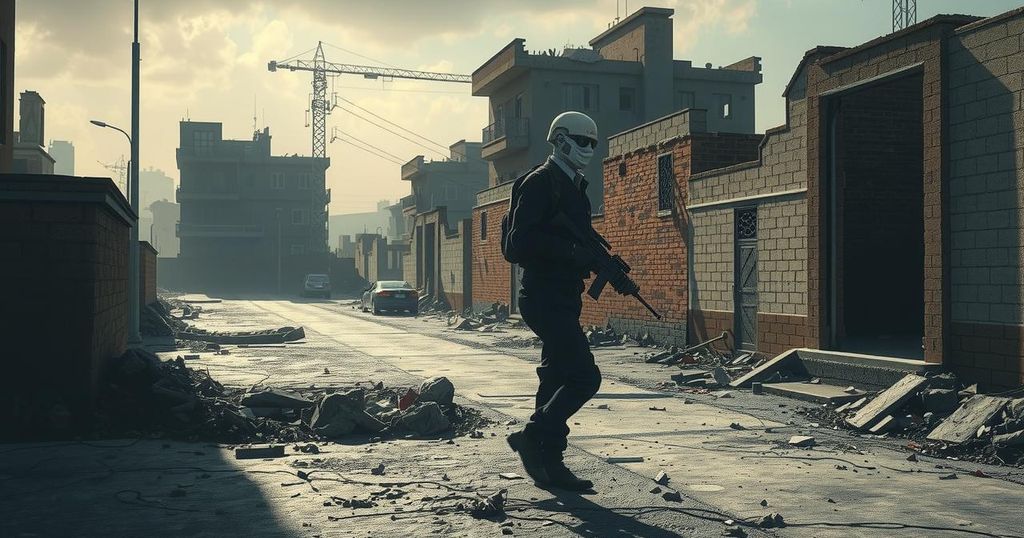Kenyan Police Officer Samuel Kaitwai Killed in Gang Shootout in Haiti

Constable Samuel Kaitwai, a 28-year-old Kenyan police officer, was killed in a gang shootout in Haiti, leaving behind a grieving family. His death highlights the dangers faced by international security forces amid rampant gang violence in Haiti. The incident marks a significant loss for both his family and the Kenyan-led MSS, reflecting the precarious security situation in the country.
Samuel Kaitwai, a 28-year-old Kenyan police officer, was killed during a gang shootout in Ségur-Savien, Haiti. His death has left his family and village in mourning, as he is survived by a wife and two young children. Kaitwai succumbed to his injuries after being transferred to a local hospital, highlighting the dangerous conditions faced by international security personnel in Haiti, which continues to grapple with significant gang violence and political unrest.
Kaitwai’s father, Kaetuai Lesaru Salaash, expressed profound grief at the loss of his son, sharing, “I was informed this morning that my son had been killed in an encounter with armed criminals. He has left behind two very young children and a wife.” Naomi Samuel, his wife, remarked that their final conversations centered around their children’s welfare, indicating Kaitwai’s dedication to family amidst his challenging role.
Joseph Kimiti, the family spokesperson, highlighted Kaitwai’s reliability and commitment to his family, noting how he turned away from harmful vices after gaining employment. His tragic death has dealt a significant blow to both the Kenyan police force and the Naserian community, where he was a figure of stability and support. An unfinished house foundation stands as a poignant reminder of his unfulfilled aspirations for his family.
Amos Kaetuai, Kaitwai’s brother, shared, “He was the only one with a stable income, and we all depended on him. You can see, he had even started building a house for his family.” This indicates the family’s reliance on Kaitwai not just emotionally, but also financially. His fatal incident marks the first casualty for the Kenyan-led multi-national force since its deployment in June 2022, underscoring the risks faced by those operating in Haiti.
According to MSS spokesman Jack Ombaka, Kaitwai was fatally wounded by a gang member during the conflict but was airlifted for treatment. Unfortunately, he did not survive the journey to the hospital. The MSS force includes officers from various countries aiming to restore stability in Haiti, predominantly under siege from gang powers controlling large regions of the country.
Gang-related violence has been at an all-time high in Haiti, resulting in over 5,500 fatalities and displacing over one million individuals this year alone. General Godfrey Otunge, the commander of the multi-national force, confirmed Kaitwai’s death and assured that his family had been informed. The Kenyan Foreign Ministry expressed profound sorrow over the incident, and Ombaka described Kaitwai as a “fallen hero” who died fighting for the people of Haiti.
Despite reinforcement with 200 additional officers, the MSS is heavily outgunned and outnumbered by gangs equipped with smuggled weapons, mainly from the U.S. Uncertainty surrounds the future of the MSS following a freeze on foreign aid programs ordered by the previous administration. While some funds have now been approved for MSS, it remains unclear if the U.S. government will back transitioning the MSS into a secure UN peacekeeping mission.
The tragic fate of Constable Samuel Kaitwai underscores the grave dangers faced by international security forces in Haiti amidst rampant gang violence. His loss reverberates through his family and community, marking a significant gap in their lives. The Kenyan-led MSS continues to combat the overwhelming threat posed by armed gangs, a task made difficult by resource limitations and an uncertain future concerning international aid support. As violence escalates in Haiti, the need for effective stabilization strategies becomes increasingly urgent.
Original Source: www.mwakilishi.com







